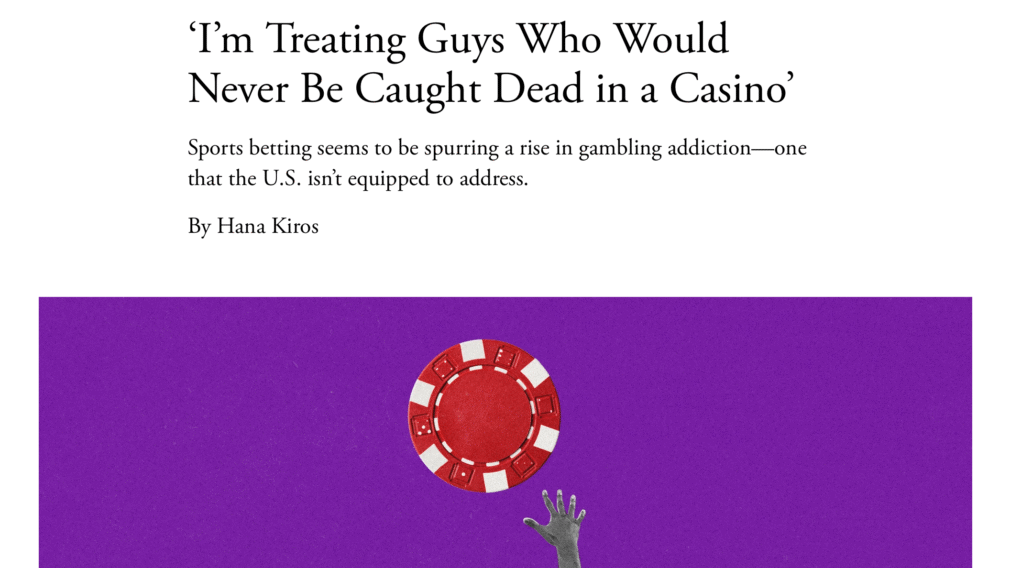The Athletic Sounds Alarm on Sports Betting’s Dark Side
For a long time, mainstream media have been turning up the heat on sports betting. The Athletic’s latest piece paints a grim picture of addiction and a system caught flat-footed.

A Sobering Spotlight
The Athletic’s Hana Kiros dropped a deep dive, “I’m Treating Guys Who Would Never Be Caught Dead in a Casino,” exposing the underbelly of America’s sports betting boom. Legal in 39 states and D.C. since 2018, the industry raked in $150 billion in wagers last year. But Kiros’s piece, echoing a growing media chorus, warns that easy access through apps like FanDuel is fueling addiction, especially among young men. “Nearly half of men under 50 now have an online sportsbook account,” she writes, citing a cultural shift where betting ads outnumber beer commercials during NFL games.
Kiros highlights how betting’s gone mainstream, with the average casino patron’s age dropping from 51 to 42 since legalization. Apps offering instant in-game bets, settled in seconds, hook users faster than old-school slots. “Rapid forms of gambling… tend to be especially addictive,” says clinical psychologist James Whelan.
The article spotlights young, single men, fantasy sports players and day traders, who see betting as a hustle. “I’m treating guys who would never be caught dead in a casino,” Whelan told Kiros.
Addiction’s Heavy Toll
The Athletic doesn’t pull punches on gambling’s fallout. Addiction mirrors drug dependency, with brain scans showing similar patterns. One in six pathological gamblers attempts suicide, and Kiros quotes psychiatrist Timothy Fong: “I’ve had several patients who died because of the emotional pain from their gambling disorder.”
Problem gamblers chase losses, betting bigger instead of quitting, a behavior apps exploit. Family lawyers fret about kids caught in divorce fallout from parents’ betting debts. With no centralized U.S. data, state helplines report spikes, hinting at a brewing crisis.
Kiros slams the U.S. for lagging on addiction response. “The United States is unequipped to deal with it,” she writes. Federal research funding for gambling addiction is zero, unlike billions for drugs or alcohol. Treatment lags “50 years behind” substance abuse care, says counselor Michael Sciandra.
Most doctors don’t screen for gambling issues, and state resources vary wildly. Texas, with 30 million people, has just three certified counselors. Peer groups like Gamblers Anonymous help, but therapy works better, yet it’s scarce.
Media’s Mixed Lens
Mainstream outlets like The Athletic often zero in on gambling’s toll, sidelining the industry’s $150 billion economic surge in 2024 across 39 states and D.C.
Kiros’s piece, while sharp, fits this mold, spotlighting young men hooked on apps like DraftKings but glossing over business wins or responsible gaming tools. However, articles like this are always a vital temperature check and show how the industry is seen by the average person. It’s like we almost always know what issues they’ll touch on before even opening them. That doesn’t change a bit in the overall idea that those pieces should be printed on the walls of operators’ offices.
Recommended
